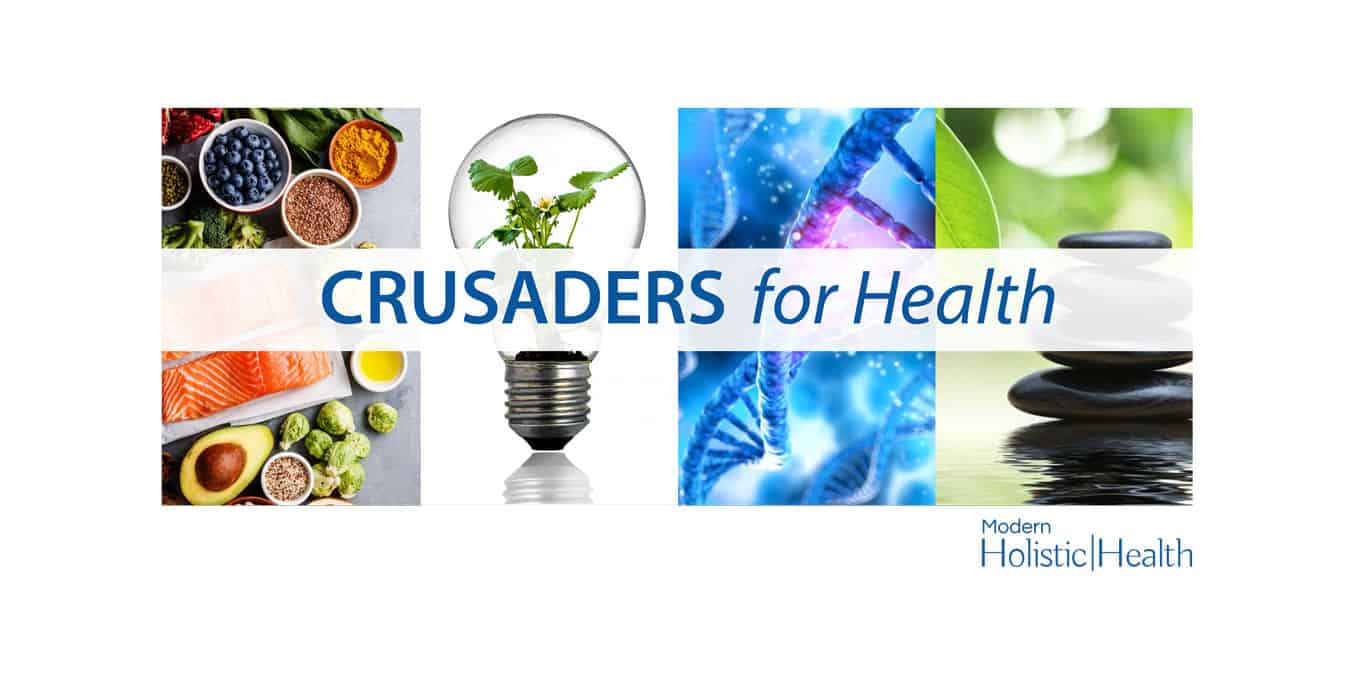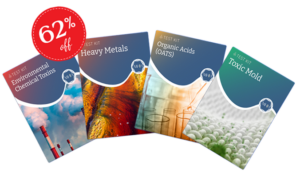
Three things you can do to support your Mental and Physical Health as winter approaches
As December unfurls its amber tapestry and the first hints of winter chill tease the air, there’s more to this transitional month than the promise of holiday feasts and gatherings. This month presents a unique opportunity to focus on a fundamental yet often overlooked aspect of our well-being: How our microbiome influences our mental and physical health. The beautiful vast ecosystem of living organisms within us, without whom we would have no immune health, no happy hormones, no existence at all, are pivotal not only in our ability to sustain health but also necessary in the facilitation of our ability to heal from mental health conditions and other chronic illnesses.
The Enigmatic World Within: Understanding the vast ecosystem of living organisms within us
While we have trillions of bacteria and viruses living on and inside us, which are vital to our health and vitality, our gut holds a powerful network of microorganisms that create what is known as the gut microbiome. Often dubbed the body’s “second brain,” the unique ecosystem within our gut is teeming with life—trillions of microorganisms, including bacteria, fungi, and viruses. This bustling metropolis, collectively termed the “microbiome,” is a linchpin in our body’s functioning.
From digesting complex carbohydrates to producing essential vitamins and brain chemicals like serotonin and dopamine, the trillions of bacteria and viruses that make up our bodies and literally give us life, health, and vitality, are fascinating multitaskers par excellence!
From influencing our personality to our immune function, to our health in every aspect, the living microbes that live on and in us influence our human experiences that stretches far and wide.
Mood and Emotions
Ever had butterflies in your stomach before a big event? That’s the gut-brain connection and the interplay of millions of microbes in action. Research indicates that the ecosystem of microbes living in our gut (known as our microbiome) can significantly impact our mood, anxiety levels, and even cause depression.
Immunity
A significant portion of our immune system is regulated in the gut. A healthy microbiome with optimal balances of the right types of bacteria and other microorganisms equips the body to fend off infections and illnesses more effectively.
Chronic Diseases
Conditions such as diabetes, obesity, and even heart diseases have links to our microbiome as well. A disrupted microbiome can increase the risk of chronic ailments like weight gain, hormone imbalances, thyroid conditions, diabetes, and even heart disease.
As December opens the door to the winter season when colds, the flu, and other “non-friendly” viruses and microorganisms become more prevalent, many want to know what they can do to prevent getting sick. In addition, the added travel and activities during the holiday season, combined with changes to our normal routines, diets, and stress levels all have a significant influence on the health of our microbiome… and ultimately our ability to stay healthy or end up sick.
Taking a proactive approach to your health and wellness becomes super important, especially if we truly want to enjoy the magic that comes with the holidays.
Three things you can do to support your Mental and Physical Health as winter approaches
- Do four weeks of gut support. Make sure you give yourself the gift of health by giving your gut some love. We recommend our clients do this for just one month, following their Annual January EPIC Detox that we hold.
Because we are exposed to toxins every day, even if we are aware and mitigating our exposure, our gut microbiome takes the brunt of the toxic load. So supporting your gut microbiome with a one-month protocol can be an excellent way to boost your immune function and reinforce your mood and overall health. - Manage your stress! As the stressors of the holiday approach, make sure you remember to take time for yourself to downregulate your nervous system. Add in some daily guided meditations combined with breath work or just slow breathing. Get outside into nature and ground yourself. Take time for YOU! It will help you keep your cortisol levels low and your immune system and mood ideal so you can enjoy the winter season.
- Keep this winter protocol in your medicine cabinet. This tried and true protocol may seem familiar (it has been used all over the world as a first-line protocol for C0-V-!D) but the truth is, this protocol has been around for decades, and it works not only for bacterial but also viral-based respiratory infections. It also works great for any type of cold or flu. The supplements in this protocol are studied and effective. (I’ve included references to the published research at the bottom of the article.)
Recommended Winter Bundle Supplements
There are supplements that have been scientifically shown to kill viruses or prevent their replication. We recommend a supply of the following supplements to have on hand that you can take as a preventative to boost your immune system, and you can use them in higher doses if you find that you are getting sick. All doses are ADULT doses and should be reduced according to weight and age if given to a child. It is recommended you schedule an appointment or talk to your care provider for more detailed dosing information.
Vitamin C:
Preventive dose for adults: 3,000 mg (or more) daily—divided into doses for best utilization and absorption for the body. As a general rule, you can increase your dose until you start having watery stools (to bowel tolerance) and then reduce the dose to stop the loose stools, and that is the dose your body can handle.
Vitamin D3:
Vitamin D is an important immune regulator and is known to shorten the course of respiratory tract infections and even help in the prevention of the flu. Because many people have the VDRtaq gene mutation, they are not able to synthesize their own vitamin D.
To cover bases, we recommend a combination Vitamin D3/K2 supplement to ensure the body is able to get the benefits and optimally utilize the vitamin D. Vitamin D is a well known immune booster, and alarmingly, most people are severely deficient in Vitamin D, especially in the winter months.
You can read more about the importance of Vitamin D and how much I personally take on a daily basis in my article. Many recommendations on vitamin D doses range from 2,000IU per day up to 10,000IU per day and when sick, up to 50,000 IU per day for 3-4 days, then reducing the dose back to 2,000-10,000 IU daily.
Vitamin A:
Vitamin A, much like vitamin D, has amazing immune-boosting properties, and it also has antiviral properties as well. Vitamin A protects the mucus membranes and lining in your upper respiratory system. Beef liver supplements contain the best source of vitamin A, and you can safely take up to 25,000 IU daily for 1-2 weeks if you are sick. For a daily dose, the Mayo Clinic recommends between 2,500–3,000 IU per day (700–900 mcg)
Selenium:
Substantial research has been conducted that shows that people with selenium deficiencies suffer far more serious viral infections than those that have adequate levels of selenium in their bodies. Viruses can mutate much faster in selenium-deficient people, leading to longer-lasting and more severe infections. Some studies have also shown that selenium prevents viruses from mutating into highly virulent (destructive) forms that lead to chronic disease states. Holistic and naturopathic doctors differ slightly in the dose they recommend, but many agree that 150–200 mcg per day is a therapeutic and safe dose to use to help boost your immune system against viruses.
Not only does selenium help prevent severe viral infections, but it is needed for approximately 79 different chemical reactions in the body including thyroid hormone production (specifically the T3 thyroid hormone) and brain chemistry production. Most people are deficient in selenium so adding this important mineral to your daily routine can help you in more ways than one. Remember that municipal water systems that fortify their water with fluoride can cause a deficiency in selenium by blocking the cellular receptor sites where selenium needs to enter the cell. Also consider using a non-fluoride toothpaste and a water purification system in your home like an AquaTru countertop RO system.
Iodine:
Iodine is necessary for several functions in the body including thyroid function and immune function, yet many people are deficient in iodine. Iodine comes from food sources but can also be taken in supplement form at a dose of 25 mcg per day. If you have signs of illness or infection, you can increase your dose up to 50–75 mcg per day for 1-2 weeks. This is not recommended for those with thyroid autoimmune disorders like Hashimoto’s disease without first consulting with your health coach or practitioner.
Colloidal Silver:
Colloidal Silver has many uses when it comes to various infections and is also effective against viruses. Silver has been shown to destroy the SARS coronavirus and MRSA when taken internally and nebulized. I HIGHLY recommend nebulizing one teaspoon of silver daily in distilled water. Nebulizing is simply taking water and adding products to it (like silver) and then breathing the cold steam produced by the nebulizer into your lungs and sinuses. This not only enters the lungs but is an effective way to get the benefits of the silver systemically. You can nebulize as a preventative and also if you realize you have been exposed and are feeling ill. We recommend purchasing a nebulizer that includes both a children’s and adult face mask, and you can order additional tubing masks for other family members in the household (don’t share your tubing and masks). Some states require a prescription to buy a nebulizer. Our recommended Colloidal silver is provided below for you to easily order from our Full Script online pharmacy.
You can order your Winter Essentials Kit here from our online Fullscript Pharmacy
Let’s venture into the season with gratitude—not just for the bounties on our tables, but for the incredible microbial universe within us. By understanding, respecting, and nurturing our gut, our body, and our mind, we lay the foundation for holistic health that resonates beyond the holiday season!
Case HS (2018) Vitamin C questions answered. Orthomolecular Medicine News Service, http://orthomolecular.org/resources/omns/v14n12.shtml
Gonzalez MJ, Berdiel MJ, Duconge J (2018) High dose vitamin C and influenza: A case report. J Orthomol Med. June 2018, 33(3). https://isom.ca/article/high-dose-vitamin-c-influenza-case-report/
Gorton HC, Jarvis K (1999) The effectiveness of vitamin C in preventing and relieving the symptoms of virus-induced respiratory infections. J Manip Physiol Ther, 22:8, 530-533. https://www.ncbi.nlm.nih.gov/pubmed/10543583
Hemilä H (2017) Vitamin C and infections. Nutrients. 9(4). pii:E339. https://www.ncbi.nlm.nih.gov/pubmed/28353648
MNS (2009) Vitamin C as an antiviral http://orthomolecular.org/resources/omns/v05n09.shtml
Taylor T (2017) Vitamin C material: where to start, what to watch. OMNS, http://www.orthomolecular.org/resources/omns/v13n20.shtml
Yejin Kim, Hyemin Kim, Seyeon Bae et al. (2013) Vitamin C is an essential factor on the antiviral immune responses through the production of interferon-α/β at the initial stage of influenza A virus (H3N2) infection. Immune Netw. 13:70-74. https://www.ncbi.nlm.nih.gov/pubmed/23700397
Cannell JJ, Vieth R, Umhau JC et al. (2006) Epidemic influenza and vitamin D. Epidemiol Infect. 134:1129-1140. https://www.ncbi.nlm.nih.gov/pubmed/16959053
Cannell JJ, Zasloff M, Garland CF et al. (2008) On the epidemiology of influenza. Virol J. 5:29. https://www.ncbi.nlm.nih.gov/pubmed/16959053
Ginde AA, Mansbach JM, Camargo CA Jr. (2009) Association between serum 25-hydroxyvitamin D level and upper respiratory tract infection in the Third National Health and Nutrition Examination Survey. Arch Intern Med. 169:384-390. https://www.ncbi.nlm.nih.gov/pubmed/19237723
Martineau AR, Jolliffe DA, Hooper RL et al. (2017) Vitamin D supplementation to prevent acute respiratory tract infections: systematic review and meta-analysis of individual participant data. BMJ. 356:i6583. https://www.ncbi.nlm.nih.gov/pubmed/28202713
Urashima M, Segawa T, Okazaki M et al. (2010) Randomized trial of vitamin D supplementation to prevent seasonal influenza A in schoolchildren. Am J Clin Nutr. 91:1255-60. https://www.ncbi.nlm.nih.gov/pubmed/20219962
von Essen MR, Kongsbak M, Schjerling P et al. (2010) Vitamin D controls T cell antigen receptor signaling and activation of human T cells. Nat Immunol. 11:344-349. https://www.ncbi.nlm.nih.gov/pubmed/20208539
Proc Nutr Soc. 1999 Aug;58(3):719-27. Vitamin A and immunity to viral, bacterial and protozoan infections. https://www.ncbi.nlm.nih.gov/pubmed/10604208
Zinc:
Zinc is known for its ability to prevent the replication of viruses which can shorten the course of a viral infection and also help in preventing the virus from hijacking the cell in the first place if taken prophylactically. We recommend 20-50mg per day.
Fraker PJ, King LE, Laakko T, Vollmer TL. (2000) The dynamic link between the integrity of the immune system and zinc status. J Nutr. 130:1399S-406S. https://www.ncbi.nlm.nih.gov/pubmed/10801951
Liu MJ, Bao S, Gálvez-Peralta M, et al. (2013) ZIP8 regulates host defense through zinc-mediated inhibition of NF-кB. Cell Rep. 3:386-400. https://www.ncbi.nlm.nih.gov/pubmed/23403290
Mocchegiani E, Muzzioli M. (2000) Therapeutic application of zinc in human immunodeficiency virus against opportunistic infections. J Nutr. 130:1424S-1431S. https://www.ncbi.nlm.nih.gov/pubmed/10801955
Shankar AH, Prasad AS. (1998) Zinc and immune function: the biological basis of altered resistance to infection. Am J Clin Nutr. 68:447S-463S. https://www.ncbi.nlm.nih.gov/pubmed/9701160
Beck MA, Levander OA, Handy J. (2003) Selenium deficiency and viral infection. J Nutr. 133:1463S-1467S. https://www.ncbi.nlm.nih.gov/pubmed/12730444
Hoffmann PR, Berry MJ. (2008) The influence of selenium on immune responses. Mol Nutr Food Res. 52:1273-1280. https://www.ncbi.nlm.nih.gov/pubmed/18384097
Steinbrenner H, Al-Quraishy S, Dkhil MA et al. (2015) Dietary selenium in adjuvant therapy of viral and bacterial infections. Adv Nutr. 6:73-82. https://www.ncbi.nlm.nih.gov/pubmed/25593145
J Nanobiotechnology. 2010; 8: 1. Published online 2010 Jan 20. doi: 10.1186/1477-3155-8-1 Mode of antiviral action of silver nanoparticles against HIV-1 https://www.ncbi.nlm.nih.gov/pmc/articles/PMC2818642/
10 Uses of Colloidal Silver https://www.huffpost.com/entry/9-silver-benefits-and-uses-backed-by-science_b_5797d100e4b0b3e2427d2c65

-
Modern Holistic Health
3267 Bee Cave Rd, Ste. 107-187 Austin, TX 78746 - 512.550.7933 | (888) 260-3377
- [email protected]








